Water & Wastewater
Anaconda’s pipe & hose systems deliver reliable, corrosion-resistant conveyance for municipal and industrial water and wastewater projects. Engineered HDPE pipe, heavy-duty slurry hose, and resilient lay-flat hose combine to support water distribution, effluent discharge, sewage suction, and process piping in treatment plants and reuse systems. Our solutions prioritize rapid deployment, low maintenance, and chemical resistance, minimizing downtime and lifecycle cost for contractors, utilities, and industrial operators. Contact us for project sizing, spec sheets, and on-site support.
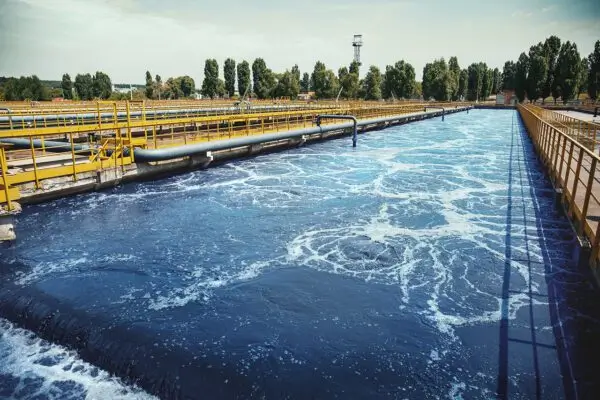
Home
Industries
Water & Wastewater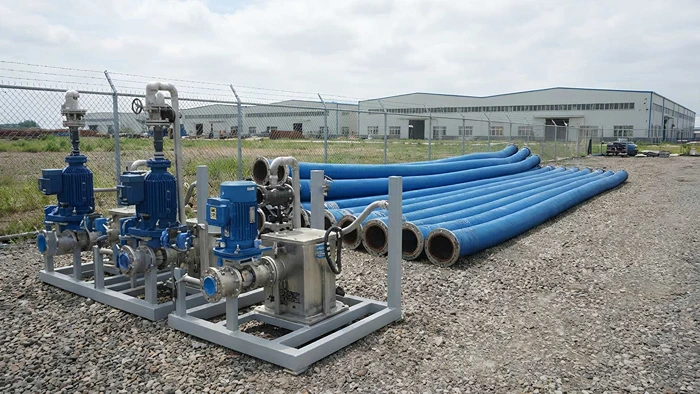
Why choose Anaconda for Water & Wastewater projects
Anaconda supplies integrated hose and pipe systems for municipal water treatment and distribution that are field-proven across dredging, plant construction, emergency bypass pumping, effluent conveyance, and reuse installations. Our product set focuses on three core needs for water & wastewater: reliable, long-term conveyance; chemical/abrasion resistance; and fast connect/disconnect capability to reduce labor and operational interruptions.
HDPE Pipe for Wastewater Management
Use cases: gravity feed and pumped conveyance, temporary bypass lines, process piping at treatment plants, potable distribution mains in temporary works.
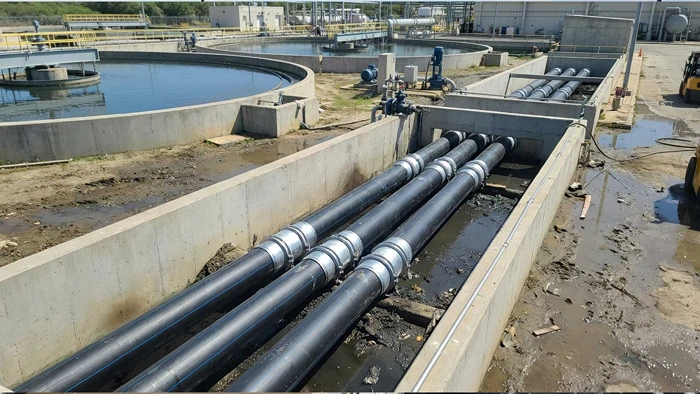
Key features
- Available in multiple SDR/DR thicknesses (DR11, DR17) to meet pressure and stiffness requirements.
- Fitted with quick-release Bauer couplings for rapid assembly, modular replacement, and leak-free joints, shortening installation and repair windows.
- Excellent chemical resistance and low permeability, suitable for HDPE pipe corrosion resistance in wastewater conveyance and for use in industrial water treatment hose & pipe systems.
Advantages for water & wastewater
- Long service life reduces the total cost of ownership vs. some metallic alternatives.
- Lightweight for faster mobilization and lower handling costs on site.
- Interchangeable fittings and rental availability support short-term bypasses and emergency response without capex.
Typical specifications available
Diameters covering small process runs through large bypass mains, in standard lengths or custom cut to order. Bauer and ANSI flange compatibility for plant integration.
Slurry suction hose for wastewater environments
Use cases: abrasive solids removal, sludge transfer, dredge-assisted cleanouts, dewatering, and grit handling in wastewater plants.
Key features
- Sturdy abrasion-resistant linings and reinforcement layers designed for solids-laden flows.
- Available with a range of end fittings and flanges to suit pumps, couplings, and mobile dredges.

Advantages for water & wastewater
- Minimizes hose failure from abrasive slurries, critical for continuous desludging and grit-removal operations.
- Designed for both suction and discharge service, making it ideal as a suction and discharge hose for water processing plants and an effluent discharge hose for wastewater plants.
- When used with HDPE bypass mains, the slurry hose provides a complete conveyance solution from the wet well to disposal or treatment.
Lay-Flat Hose: Effluent discharge hose for wastewater plants
Use cases: temporary discharge lines, emergency bypass pumping, storm overflow management, and irrigation from reclaimed water.
Key features
- Collapsible, coiling design that stores compactly and reels easily for rapid deployment.
- Configurations for industrial and firefighting duty with reinforced covers and UV resistance for outdoor staging.
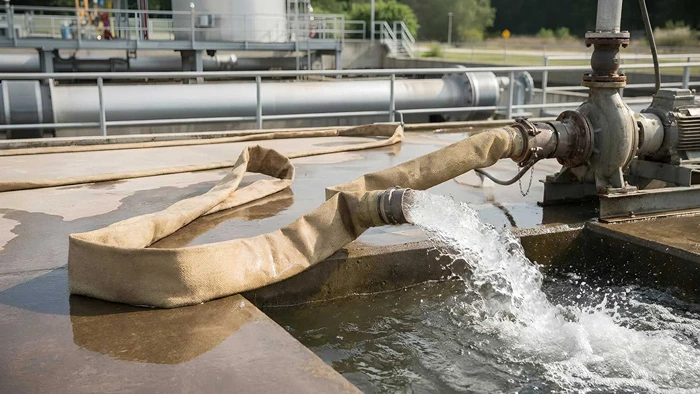
Advantages for water & wastewater
- Ideal for temporary or seasonal discharge lines where quick mobilization and stowage matter.
- Compatible with pump skids and portable pumping equipment used during maintenance or bypass work.
- Cost-effective option for non-pressurized effluent conveyance and reuse distribution.
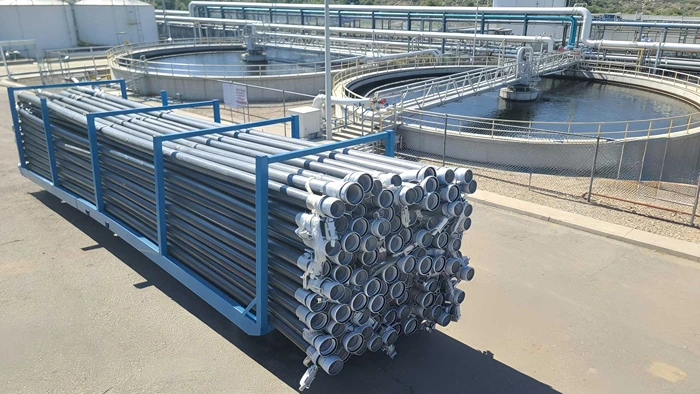
System-level benefits: Hose and pipe systems for municipal water treatment and distribution
- Integrated solutions: Combine HDPE pipe for main runs, slurry hose for solids handling, and lay-flat hose for temporary discharges to create a reliable end-to-end conveyance strategy.
- Reduced downtime: Quick-connect fittings and modular lengths reduce repair time and labor costs during outages or maintenance.
- Chemical & abrasion resistance: Materials selected for compatibility with water treatment chemistries and abrasive sludge streams, ensuring longevity in harsh wastewater environments.
Speak With Technical Team
Get in touch with Anaconda Pipe & Hose for industry-ready pipe and hose solutions.
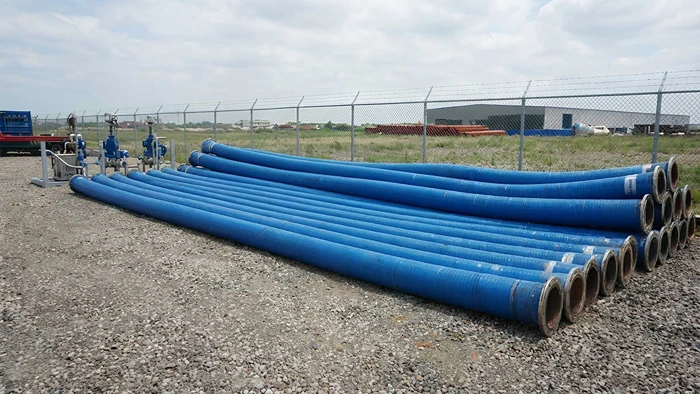
Typical wastewater treatment hose applications
- Influent and effluent bypass pumping during plant upgrades.
- Sludge and grit handling lines from primary clarifiers and digesters.
- Emergency sewage suction and temporary bypass mains.
- Water reuse distribution and irrigation using treated effluent.
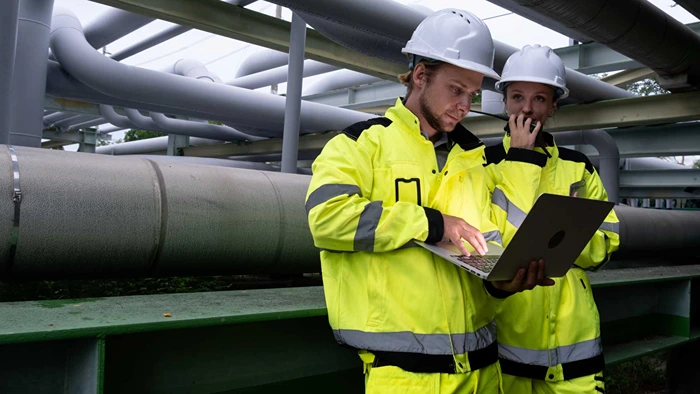
Technical support, rentals & customization
Anaconda supplies spec sheets, DR-specific HDPE options, fitted couplings (Bauer), and custom hose assemblies for exact project needs. Rental HDPE pipe options and modular hose assemblies help contractors meet tight timelines without capital investment. Contact our technical team for flow calculations, abrasion life estimates, and integration with your pump fleet.

Wastewater Hose & Pipe Solutions
Product Comparison Table
Category | HDPE Pipe | Industrial Slurry Hose | Lay-Flat Hose |
|---|---|---|---|
Primary Application | Water distribution mains, wastewater conveyance, and plant process piping | Sludge, slurry, grit, and solids handling in wastewater plants | Temporary effluent discharge, emergency bypass, rapid-deploy water transfer |
Best Used For | HDPE pipe for water, wastewater, gravity, and pumped lines, long-run conveyance | Slurry suction hose for wastewater environments, abrasive solids transfer | Effluent discharge hose for wastewater plants, dewatering, and backup lines |
Strengths | Corrosion-resistant, long service life, leak-free couplings | High abrasion resistance, reinforced for suction and discharge | Lightweight, portable, and collapsible for quick deployment |
Chemical Resistance | Excellent chemical-resistant pipe for water processing | Very good chemical resistance for corrosive sludge and slurry | Moderate chemical resistance suitable for clean water and treated effluent |
Pressure Handling | High-pressure ratings with various DR and SDR options | Suitable for suction and discharge in demanding conditions | Suitable for moderate pressure applications, not designed for heavy abrasion |
Flexibility | Strong structure suitable for long straight runs | Flexible but heavy-duty and suitable for vacuum and pressure | Highly flexible and easy to maneuver |
Fittings Available | Bauer couplings, flanged ends, and compatible plant fittings | Flanged ends and custom couplings | Camlock, Bauer, and hose-tail fittings |
Durability in Wastewater Environments | Excellent corrosion resistance for wastewater conveyance | Excellent durability for abrasive solids and sludge | Good durability for temporary and seasonal use |
Installation Speed | Fast installation using modular sections and quick-connect couplings | Moderate installation time due to hose weight and reinforcement | Very fast deployment and retrieval within minutes |
Typical Deployment | Permanent or semi-permanent systems | Medium to heavy-duty operations such as desludging and dredging | Temporary bypass, emergency repairs, and overflow management |
Mobility | Low mobility due to a solid structure | Medium mobility when paired with heavy-duty equipment | Very high mobility for rapid relocation |
Cost Efficiency | High long-term return on investment | High value for rugged performance applications | Most cost-effective option for short-term and temporary runs |
Common Water & Wastewater Uses | Sewage conveyance, plant piping, water distribution | Grit removal, sludge pumping, clarifier cleanout | Temporary effluent disposal, bypass pumping, and reuse distribution |
Case study
Restoring Wastewater Flow Efficiency During a Treatment Plant Upgrade
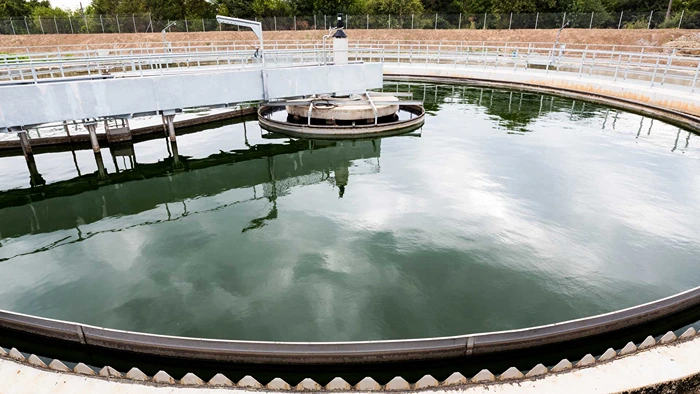
Client Overview
A municipal wastewater treatment authority in the Midwest was preparing for a multi-stage upgrade to its primary clarifier and influent screening system. The project required a reliable temporary bypass that could manage high flow volumes, handle abrasive sludge, and maintain uninterrupted wastewater conveyance throughout the construction period.
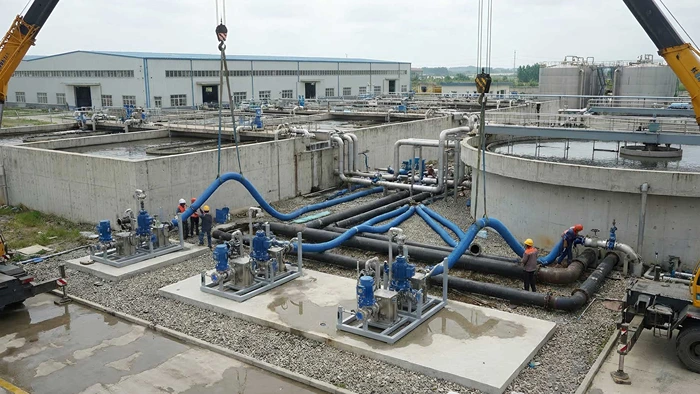
Project Challenge
The municipality faced three critical constraints:
- Maintaining full influent flow while primary systems were offline.
- Ensuring safe transfer of abrasive sludge and grit from holding basins.
- Deploying a temporary bypass system that could be installed and removed quickly without disruption to the surrounding operations.
Their existing hoses and pipelines showed wear from previous bypass work. This created a risk of leakage, abrasion failure, and downtime. The engineering contractor required a dependable combination of strong pipe and flexible hose for different stages of the project.


Solution Delivered by Anaconda Pipe & Hose
Anaconda supplied an integrated package using HDPE pipe, industrial slurry hose, and lay-flat hose, each selected based on flow requirements, chemical exposure, and deployment speed.
1. HDPE Pipe for Primary Bypass Line
- Supplied high-strength HDPE pipe for water and wastewater in DR17 for the main influent bypass.
- Quick-connect Bauer couplings allowed rapid assembly along the plant perimeter.
- The corrosion-resistant structure provided a secure wastewater conveyance pipe and supported continuous flow for the full duration of the project.
2. Industrial Slurry Hose for Sludge and Grit Transfer
- Installed abrasion-resistant slurry suction hose for wastewater environments to manage solids coming from the clarifier.
- The hose construction handled both suction and discharge, allowing the contractor to pump from sludge pits into the temporary line without frequent hose replacement.
- The durable lining reduced wear and prevented unplanned shutdowns.
3. Lay-Flat Hose for Secondary and Overflow Lines
- Deployed heavy-duty lay-flat hose for overflow handling and temporary routing during peak inflow.
- Lightweight and collapsible design supported fast relocation as construction zones shifted.
- Used effectively as an effluent discharge hose for wastewater plants where quick mobilization was essential.

Implementation and Performance
The full temporary bypass system was installed in less than 48 hours.
Key performance outcomes included:
- Stable influent flows with no leak incidents across the HDPE pipeline.
- Reliable abrasive solids handling with zero hose failures during sludge pumping.
- Flexible re-routing of temporary lines using lay-flat hose as construction work progressed.
- Compliance with the municipality’s safety and environmental requirements.
The combination of pipe and hose solutions ensured uninterrupted plant operations and helped the contractor complete upgrades with minimal downtime.

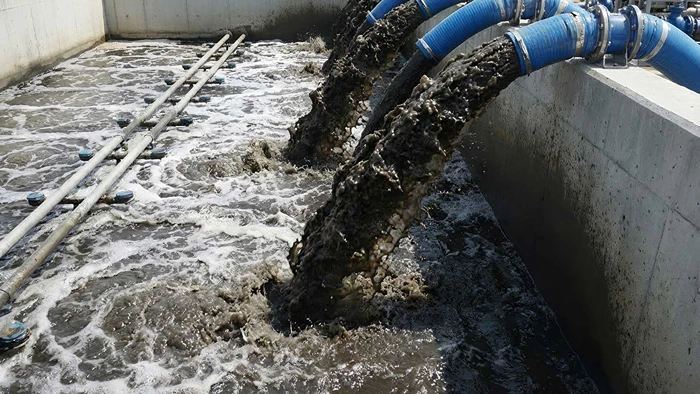
Results
- Project completed three weeks ahead of schedule.
- Maintenance costs were reduced due to fewer hose replacements.
- Continuous wastewater treatment was maintained during all construction phases.
- Improved operational safety and reduced emergency callouts.
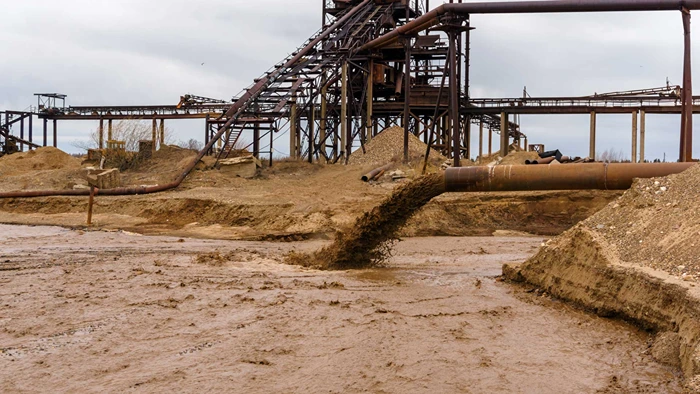
Client Feedback
The contractor noted that the system delivered strong flow stability, fast installation, and high abrasion resistance. They specifically highlighted the ease of connecting HDPE pipe segments and the long-lasting performance of the slurry hose under heavy solids loads.

Frequently Asked Questions
What hose and pipe solutions does Anaconda recommend for Water and Wastewater applications?
Anaconda recommends a combination of HDPE pipe for long-run wastewater conveyance, industrial slurry hose for abrasive sludge and grit handling, and lay-flat hose for temporary or rapid-deploy discharge systems.
Why is HDPE pipe suitable for water and wastewater conveyance?
HDPE pipe provides high corrosion resistance, strong chemical compatibility and long service life. It is suitable for wastewater conveyance, plant process piping and potable water distribution in temporary or permanent systems.
Can an industrial slurry hose handle abrasive sludge and solids?
Yes. The industrial slurry hose is specifically designed for abrasive materials, grit, sludge, and solids present in wastewater processes. It supports both suction and discharge duties in demanding environments.
What applications are ideal for lay-flat hose in wastewater operations?
Lay-flat hose is ideal for emergency bypass work, temporary effluent discharge, overflow control, bypass pumping during maintenance, and treated water transfer. It is easy to deploy, relocate, and store.
Are Anaconda hoses compatible with standard pump fittings?
Yes. HDPE pipe, slurry hose, and lay-flat hose are available with Bauer, flanged, camlock, and hose-tail fittings to ensure compatibility with a wide range of industrial pumps used in treatment plants.
Can these hose and pipe products be used in chemical dosing or water processing environments?
Yes. HDPE pipe offers strong chemical resistance suitable for water processing. Slurry hose is compatible with many wastewater chemicals, and lay-flat hose can support treated water and non-corrosive effluent flows.
How quickly can Anaconda systems be installed for emergency bypass situations?
HDPE pipe with quick-connect couplings and lay-flat hose allows quick deployment and minimal downtime. Contractors often complete bypass installations within hours, depending on flow volume and site layout.
What makes industrial slurry hose effective in wastewater plants?
Its abrasion-resistant lining, reinforced structure, and suitability for solids-heavy flow make it effective for grit removal, sludge pumping, and clarifier cleanouts.
Do these products support both permanent and temporary wastewater solutions?
Yes. HDPE pipe is commonly used for permanent or semi-permanent lines, while slurry hose and lay-flat hose support both continuous operations and temporary bypass or emergency projects.
Are custom lengths or assemblies available for water and wastewater systems?
Yes. Anaconda provides custom hose assemblies, specific DR-rated HDPE lengths, and tailored fittings to match the exact requirements of municipal and industrial water treatment projects.
Contact Anaconda Pipe & Hose
Speak with our experts to define the right solution for your project. Our team supports you from initial planning through execution.

